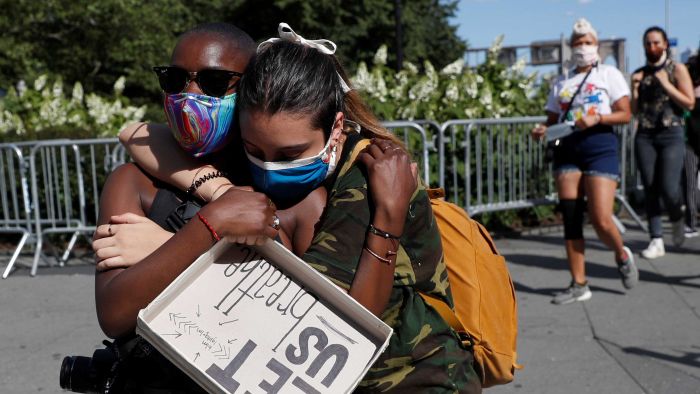Derek Chauvin could never have imagined this day.
An officer in the Minneapolis Police, he responded to a call over a suspected fake $US20 bill used at a grocery store by George Floyd.
In the next few minutes, the policeman with a long history of complaints against him would ensure his place as the most reviled man in the US.
Floyd’s killing has galvanised protests not just in his city, his state or his nation, but around the world.
Appearing via video link on second-degree murder charges, Chauvin is in many ways, the last cop of Minneapolis.
Whether the charges stick or not, his fall from grace is complete and permanent.

And by kneeling on the neck of George Floyd for nearly nine minutes the disgraced former officer has forced Minneapolis to radically change the way it will enforce the law in the future.
Minneapolis’ terrible past
For years, activists have said the Minneapolis Police Department has a racist and brutal culture that resists change.
Back in 2016, it introduced a “duty to intervene” policy.

But it was only on Friday, after Floyd’s death, that officials sought to make it enforceable in court, and to require officers to immediately report to their superiors when they saw use of any neck restraint or chokehold.
Two of the four policemen involved in the killing were rookies, with just a few days on the job.
Questioning their senior officers wouldn’t have been easy. But it might have saved a life, and their careers.
Other changes are being made, with Minnesota also launching a civil rights investigation of the department last week.
But Minneapolis City Council m

